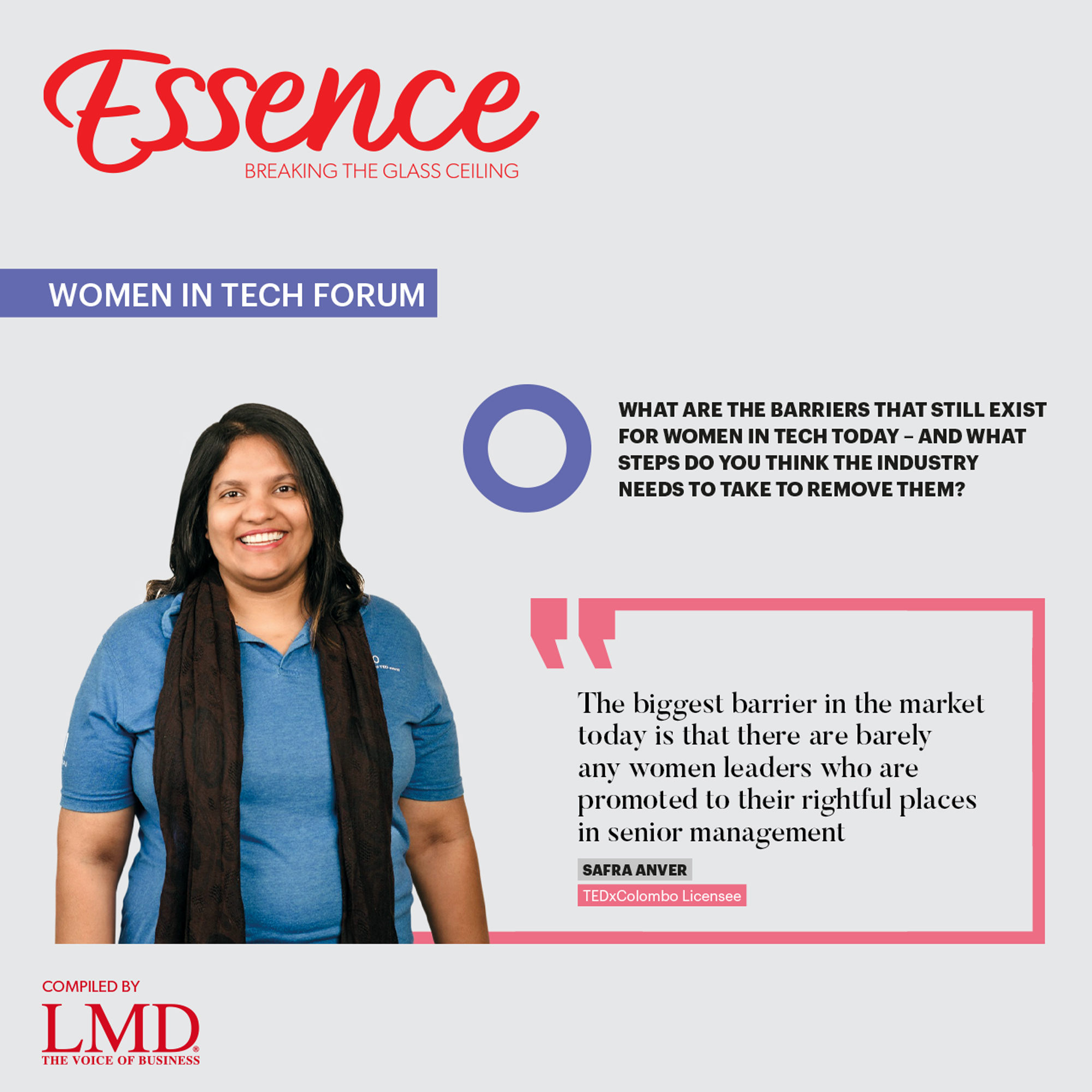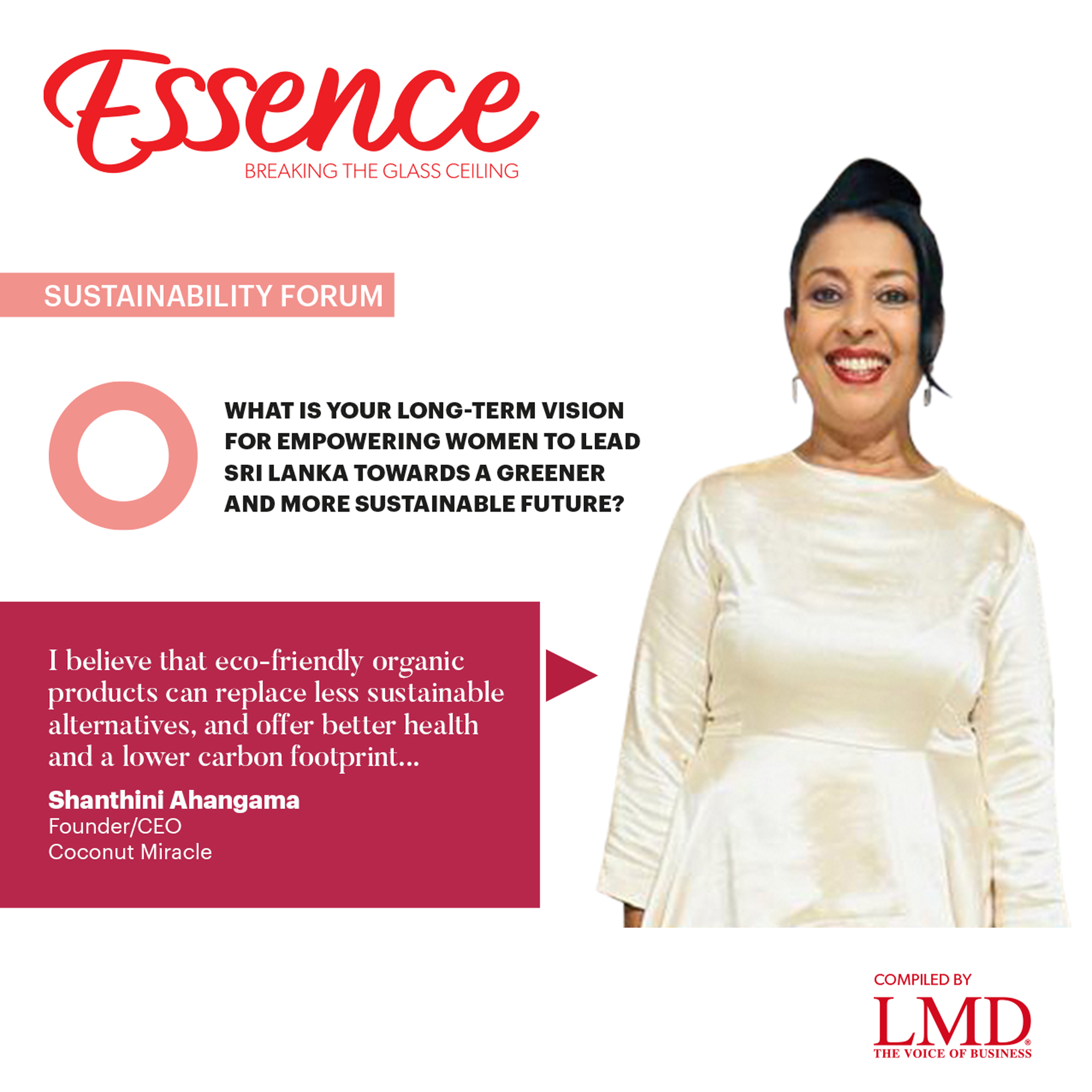ECONOMIC PARITY
The Gender Lens
Hanaa Singer-Hamdy urges economic gender parity in the modern workplace
 Expressing her love of diversity, the UN Resident Coordinator in Sri Lanka Hanaa Singer-Hamdy says: “I love walking into my office and seeing colleagues not only from different nationalities but also varying age groups, walks of life and experiences – and this includes gender diversity.”
Expressing her love of diversity, the UN Resident Coordinator in Sri Lanka Hanaa Singer-Hamdy says: “I love walking into my office and seeing colleagues not only from different nationalities but also varying age groups, walks of life and experiences – and this includes gender diversity.”
“Sustainable development relies on ending discrimination towards women. We cannot deliver on the promise of ‘leaving no one behind’ in development, if half of our world is left underrepresented in the workplace and excluded from economic opportunities,” she argues.
Although the world has come a long way, pre-COVID the World Economic Forum (WEF) predicted that at current rates of progress it would take 257 years to close the economic gender gap – 257 years!
“We can very clearly see the socioeconomic implications of COVID-19 and how it is affecting women disproportionately. This could very well widen this gap. Taking a gender lens in the crisis response and recovery will be critical to advance economic gender parity not only in the workplace but also at home,” she urges.
Singer-Hamdy states: “A number of barriers hinder women from reaching the higher echelons of leadership. One example is the unconscious biases and gendered expectations of leadership in the workplace. For women to bring their unique strengths to the workplace, we need organisations that value gender diversity…”
“One of the major deterrents for women in politics is harassment. Women who are interested in pursuing a career in politics have often told me how they’ve been subjected to harassment both online and offline,” she reveals.
Furthermore, studies show that 90 percent of women in Sri Lanka are affected by sexual harassment on public transportation. If women don’t feel comfortable and confident that they can commute to their workplaces, this could be a major deterrent to their meaningful participation in the labour force.
“Women in leadership can bring very diverse experiences and expertise to any organisation or society. For example, we can see how countries with women leaders have thrived in dealing with the COVID-19 crisis,” Singer-Hamdy adds.
She cites a McKinsey report which estimates that US$ 12 trillion can be added to global growth by advancing gender equality. Sri Lanka has the potential to add 20 billion dollars a year to its GDP by 2025, which would increase the country’s growth trajectory by about 14 percent with more women in the workplace.
Citing her personal experience, Singer-Hamdy says “it has definitely been a tough but fantastic road to reach where I am. I’ve always had to work twice as hard, accept difficult assignments and constantly prove myself in extraordinary ways.
“As a woman from my part of the world working in conflict zones such as Syria, Chechnya, the Great Lakes, and managing cross border operations with Afghanistan and Iraq, I’ve had to work much harder to earn the trust of governments and political leaders, as well as the respect of my peers,” she discloses.
And she adds: “I felt like I had to prove myself over and over to those around me. As a young professional, I’d doubt and challenge myself. After many years of overcoming difficult situations, I developed a thick skin and the self-confidence to trust my leadership style.”
Hanaa Singer-Hamdy recounts however, that she has had “some privileges – a family and husband who are strong believers in a woman’s right to education, pursuing a career and leadership. I also joined an organisation that has continued to focus on achieving gender parity.
“Currently, the UN Secretary-General’s global senior leadership team comprises 47 percent women but parity is not just about numbers – it’s also about institutional culture and change; and I’m confident we will get there. As a collective, we need to work harder to shatter the glass ceiling – no matter where we are or what we do.”





